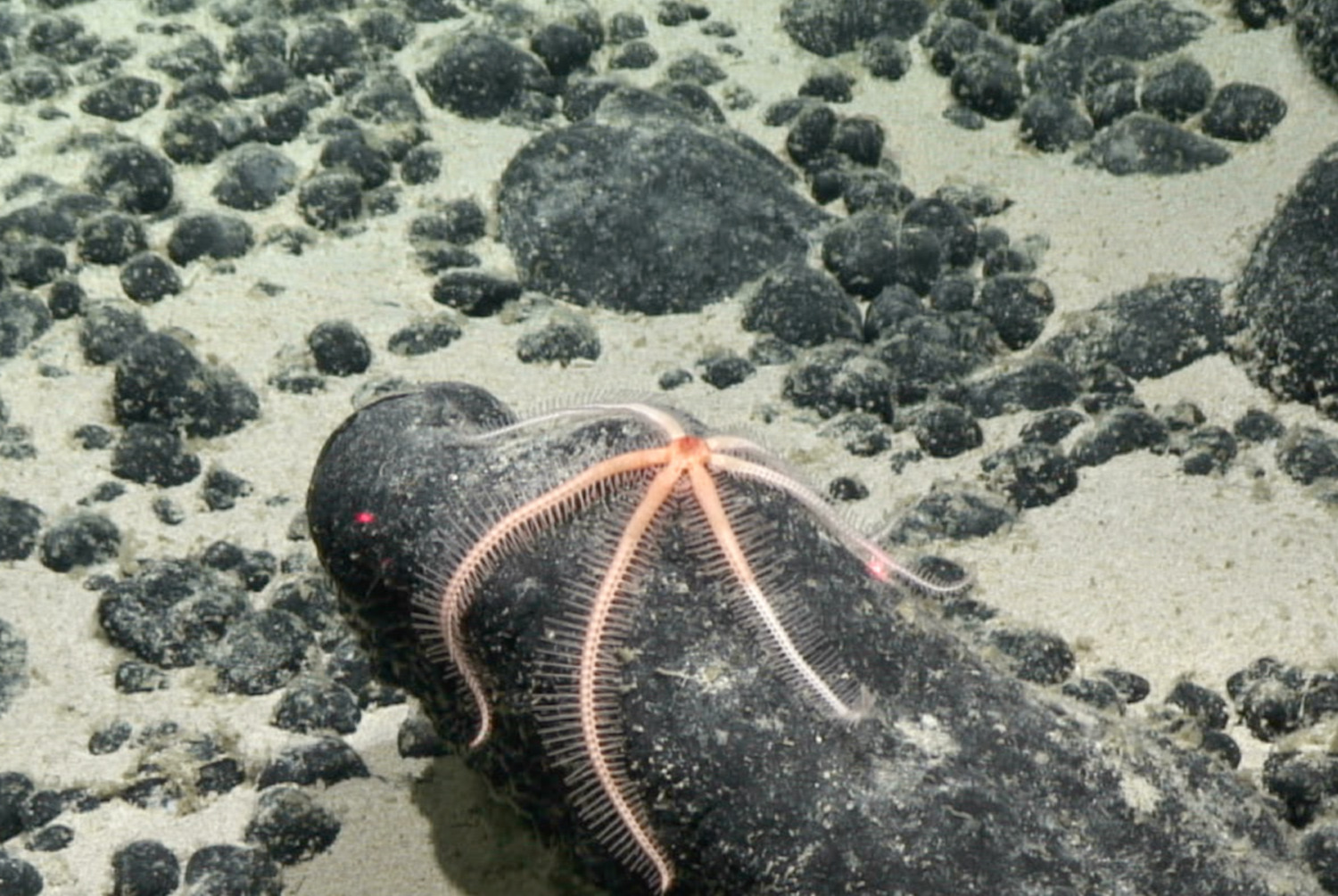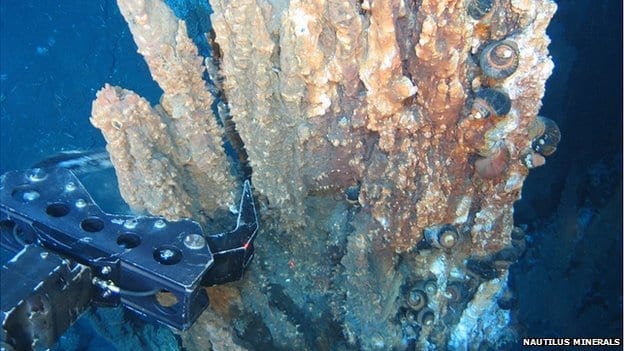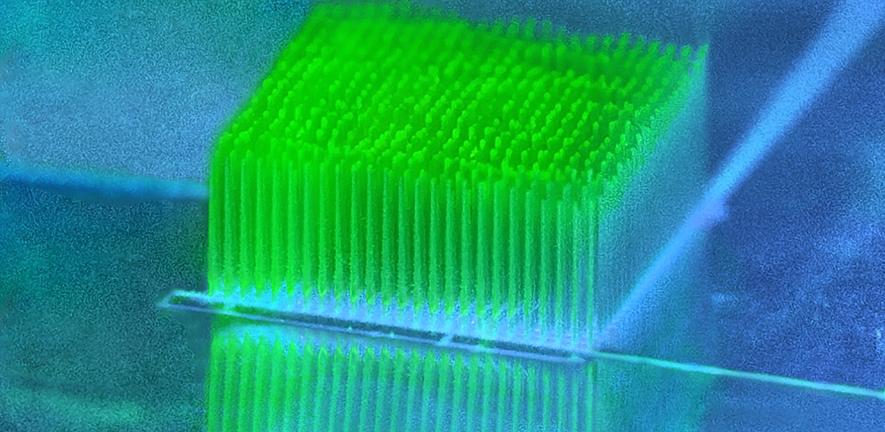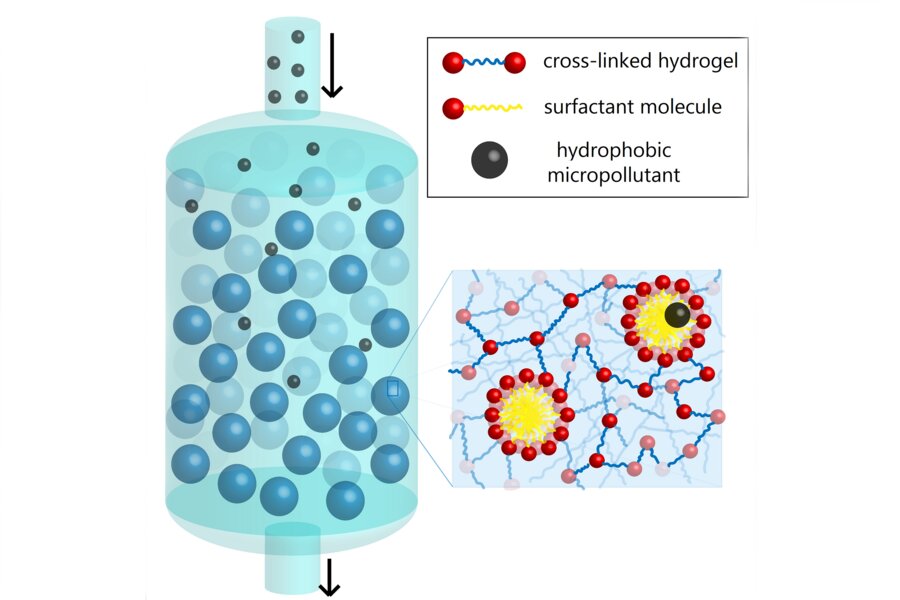
Brisingid asteroid on manganese encrusted rock with nodules.
Credit: DeepCCZ
For the first time, scientists have a comprehensive overview of the gaps in our knowledge about ocean areas targeted for deep-sea mining and how they could be impacted. New research, published in Marine Policy and co-authored by University of Hawai‘i at Manoa oceanographers, shows that the science is insufficient to support evidence-based decision-making should mining move forward.
These findings come as the International Seabed Authority prepares to meet in late March to discuss regulations that would allow commercial-scale deep-sea mining to begin as early as July 2023.
“This gap analysis highlights how much we still need to know about deep-sea ecosystems to effectively manage seabed mining, and to even know how damaging mining will be to ocean ecosystems from the seafloor to the ocean’s surface,” said Craig Smith, professor emeritus of oceanography at UH Manoa’s School of Ocean and Earth Science and Technology, and study co-author. “Considering that the ecosystems targeted for mining are among the most pristine and biodiverse in the ocean, we must use extreme caution in moving forward with seabed mining. Otherwise, mining in the deep sea may accelerate the crises of species extinctions and loss of ecosystem services we are witnessing on our planet.”
The study was led by deep-sea biologist Diva Amon, a former postdoctoral scholar at UH who starred alongside Will Smith in an episode of National Geographic’s Welcome to Earth series on Disney+ and more than 30 other scientists and policymakers from around the world.
Identifying gaps
By reviewing hundreds of scientific articles and interviewing dozens of stakeholders, the study identifies gaps in environmental knowledge for areas of the deep seabed targeted for mining. Further, the authors propose a path for filling those gaps to help policymakers better understand the negative ecological and economic impacts that mining would cause so they can ground their decisions in science.
“Besides being a vast reservoir of biodiversity, the deep ocean provides us with benefits ranging from carbon sequestration, to medicine, to food chains that sustain billions of people,” said Amon, who is a marine biologist and director and founder of SpeSeas. “But climate change, habitat destruction, and overfishing are already stressing the ocean, and seabed mining would jeopardize ocean health even more. If we continue to proceed on this path blindly, we will lose parts of our ocean before we truly know them and the benefits they offer. We can’t effectively manage and protect what we don’t know, understand and value.”
Original Article: Scientists warn too many unknowns for deep-sea mining
More from: University of Hawaii
The Latest Updates from Bing News & Google News
Go deeper with Bing News on:
Deep sea mining
- No discussion for deep sea mining, says PM
Rabuka says Fiji is not involved in any discussions at this moment regarding deep-sea mining.
- From Cryptocurrency to Cannabis: 7 Penny Stocks on the Rise
InvestorPlace - Stock Market News, Stock Advice & Trading Tips Penny stocks tend to be volatile, illiquid and (in many cases) poor companies ...
- What the Heck Is Seaweed Mining?
Preliminary research suggests seaweed can trap and store valuable minerals. Is this the beginning of a new type of mining?
- Scientist calls out problematic 'climate solution' with potential for severe ocean damage: 'The issues far outweigh the benefits'
The fate of deep sea mining hangs in the balance. Scientist calls out problematic 'climate solution' with potential for severe ocean damage: 'The issues far outweigh the benefits' first appeared on ...
- Activists stage metal concert to sound of deep sea machinery outside London summit
CLIMATE activist group Ocean Rebellion staged a heavy metal concert outside the Deep Sea Mining Summit in London’s Canary Wharf on Wednesday. Recently, the UN International Seabed Authority awarded ...
Go deeper with Google Headlines on:
Deep sea mining
[google_news title=”” keyword=”deep sea mining” num_posts=”5″ blurb_length=”0″ show_thumb=”left”]
Go deeper with Bing News on:
Seabed mining
- Environmental group to challenge Norway's deep-sea mining in court
Nordic state recently became first country to approve controversial practice of commercial-scale deep-sea mining ...
- Deep-sea expedition captures stunning images of creatures in Pacific mining zone
The voyage was the second conducted by a UK initiative known as the Seabed Mining and Resilience to Experimental Impact, or SMARTEX, project, involving the Natural History Museum, National ...
- Deep-sea mining’s future still murky as negotiations end on mixed note
Between March 18 and 29, members of the International Seabed Authority (ISA), the U.N.-affiliated regulator of deep-sea mining activities in international waters, met for talks in Kingston, Jamaica.
- Why the U.S. is absent from international seabed mining talks
And for over a decade now, they've been working on the so-called mining code. They're drafting this rulebook that any seabed mining operation would have to follow - things like environmental ...
- TTR Abandons Seabed Mining Application, KASM Labels It A Cowardly Move To Get Onto Fast-track
Kiwis Against Seabed mining today slammed Australian owned would-be seabed miner Trans Tasman Resources (TTR) for abandoning its application to the Environmental Protection Authority (EPA ...
Go deeper with Google Headlines on:
Seabed mining
[google_news title=”” keyword=”seabed mining” num_posts=”5″ blurb_length=”0″ show_thumb=”left”]










